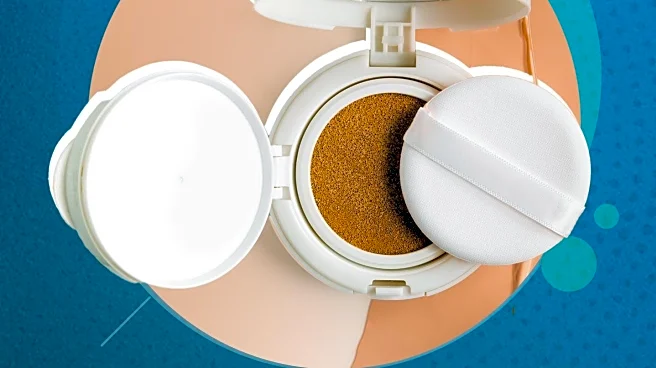What is the story about?
What's Happening?
The self-testing kits market in India is experiencing rapid growth, driven by increased health awareness and demand for point-of-care diagnostics. According to a report by IMARC Group, the market size reached USD 539.65 million in 2024 and is projected to grow to USD 866.67 million by 2033. The popularity of self-testing kits for conditions such as diabetes, pregnancy, and infectious diseases is rising, fueled by the convenience and privacy they offer. The COVID-19 pandemic has further accelerated the adoption of these kits, as consumers seek to manage their health from home. Technological advancements have made these kits more user-friendly and accessible through various distribution channels.
Why It's Important?
The growth of the self-testing kits market in India reflects a broader shift towards decentralized healthcare and patient empowerment. As urbanization and lifestyle-related health issues increase, self-testing kits offer a scalable solution to bridge diagnostic gaps, particularly in areas with limited healthcare access. The market's expansion is supported by government initiatives promoting preventive health and telemedicine. This trend not only enhances consumer convenience but also has the potential to reduce the burden on traditional healthcare systems. The increasing investment in health-tech innovations and regulatory support further bolster the market's growth prospects.
What's Next?
The self-testing kits market in India is expected to continue its upward trajectory, driven by ongoing technological advancements and increased consumer awareness. The integration of mobile apps and digital health tools will likely enhance user experience and accessibility. As the market evolves, there may be a greater focus on developing non-invasive and cost-effective testing solutions. Additionally, partnerships between diagnostic companies and e-commerce platforms could expand market reach, particularly in tier-2 and tier-3 cities. The continued emphasis on preventive healthcare and early intervention will play a crucial role in shaping the future of the self-testing kits market.
Beyond the Headlines
The rise of self-testing kits in India highlights the intersection of technology and healthcare, offering insights into the future of patient-centric care. This trend underscores the importance of digital health literacy and the role of technology in democratizing healthcare access. As consumers become more proactive in managing their health, there is potential for significant cultural and behavioral shifts in how healthcare is perceived and delivered. The market's growth also raises questions about data privacy and the need for robust regulatory frameworks to ensure consumer safety and trust.















